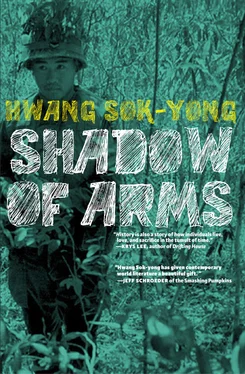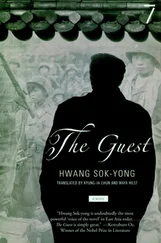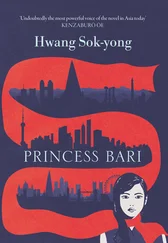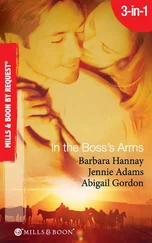They got up from the messy table. The restaurant had no customers apart from a couple of people drinking tea. They emerged from the pub and headed down the back alley into Le Loi market.
“When I went to the moneychanger,” Toi said, “they already had heard of the restrictions on passes. They must have known about that immediately since the volume of money being changed had rapidly fallen. But they do not yet seem too concerned about it. After all, the main business for the third-country moneychangers lies in trading mainland greenbacks.”
“Nguyen Thach once suggested that, in return for our opening a channel of medical supplies, he would change our military currency to US dollars with no commission.”
Toi whistled. “Too bad, that was a great opportunity. The cost of changing will double, triple; who knows, it may increase fivefold.”
“What if the currency is replaced?”
“You guys have nothing to worry about. The finance department will treat the Allied Forces just like US troops, and they’ll swap it for you with no loss.”
“That’s not true. The captain, the sergeant, they will have no way out. The military currency they are hoarding, apart from the dollars sent back home, is all blind money.”
“Then they ought to find a channel of exchange in advance.” Yong Kyu and Toi kept on walking up the back alley behind the old market street. They passed by the signboard of Puohung Company, painted in red letters on a white background, in between a row of shops. A three-quarter ton truck was stopped out front and workers were busy unloading boxes and carrying them inside the warehouse.
“Look at that,” whispered Toi, “more goods coming in. If our guess was right, they will keep on coming in tomorrow and the next day, too.”
They purposely slowed their pace and stalled to loiter a while. An American military driver was sitting in the cab, smoking a cigarette. Old Man Hien was standing at the front door of the place with his hands behind his back, watching. As they passed by the truck, they took a peek inside at the boxes being carried in. Over his gold-rimmed glasses, Hien gave them a probing look. Once they had passed by, Toi spoke.
“You saw them, didn’t you? The boxes were white with frost. They’re fresh out of a freezer.”
“Right. Looked like meat to me. Must have been about a hundred boxes, since they were piled all the way to the top of the truck.”
Behind the next row of stores was a narrow alley lined with two-story houses, mostly used for inns, brothels, and small handcraft workshops. Toi pulled a rope hanging down outside of a porch covered with wire mesh. A bell sounded, and then the familiar face of the landlord slowly appeared in the hall. He shouted in the direction of the second floor, clapping his hands.
“ Khach !”
They could hear thumps on the stairs, and then Stapley came into view down the steps. The man had called him “ Khach ,” meaning guest, and Stapley truly cut a figure too precious to rot away in Vietnam. He wore his “Run, Rat!” pendant around his neck, a pair of blue jeans, and a black Vietnamese shirt. His hair was long enough to cover the nape of his neck and his beard had filled out enough to make him resemble a medieval monk. This guest seemed to have been away from the battlefield for ages. Even his gait was leisurely. He grinned like a Cheshire cat. His eyes were dreamy and between his fingers he had a lit joint of marijuana. Yong Kyu patted him on the shoulder.
“Hey, hippie, how do you like the neutral zone?”
“I feel light as a feather. It’s a white wall.”
“Can’t you stop smoking the marijuana?”
“I’m still in a waiting room. I have no choice but to travel as I lay here. This is much better for your health than heroin.”
The landlord offered them seats. In the hall there was a bamboo bed and wooden chairs propped against the wall. Toi and the landlord started conversing.
“I heard your son’s going to be a little delayed.”
“Yes, about a week later than scheduled. He was supposed to have arrived tomorrow. Now he won’t be in port until next week.”
“Does your son know about this matter here?”
“No, not yet. But there’ve been similar cases before. One time he took several Vietnamese youths to Saigon. They included a draft dodger and also a young deserter.”
Yong Kyu gave Stapley a bottle of whiskey he’d brought with him.
“A gift. Drink it at night.”
Grinning broadly, Stapley kissed the bottle.
“So, what else have you been doing,” Yong Kyu asked, “besides torching grass.”
“I’ve done a little masturbating, and some reflecting about America too. Then I thought about what it would be like to live in some other country with a new name. Burma, India, some little village in central Asia somewhere near Bali wouldn’t be too bad. Anyway, somewhere beyond the reach of the Pax Americana. True, the world order is in process of changing these days. This war will be the last farewell to the old colonialism and the old era.”
“Things may get worse, you never know. The military will be strengthened. The weapons will be newer and deadlier, the Cold War intensified. What little money you have soon’ll be parted from you, and then what’ll you live on?”
“I’ll do anything. I’ll carve wood, make pottery, or weave mats. I just want to live in a totally different way.”
“Aren’t you going back to New York?”
“I don’t know. If the war comes to an end, I suppose I might make it back somehow. I have this friend by the name of Holden Caulfield. He didn’t know where this phony order came from — just like I didn’t know before coming to Vietnam. I wonder if I can use love to demolish all these monstrosities. Love is bullshit, it has a suspicious smell. It kicks up dust and then glosses things over. Love recognizes hypocrisy but doesn’t try to change it. It pronounces its solitary neutrality and then becomes an eternal fugitive. Listen to the lyrics of the pop songs these days, all the abstractions of defeatism, peace, loneliness, love, all camouflaged with beauty. That I run off into the jungle like some Frenchman, and don’t join the NLF, that I dream of some quiet village in Tibet or a desert island in the Pacific, those are self-imposed failures to act. There exists no island like that where you never grow to be an adult. I’m going to flee with all the children straight through the rye fields and go crashing down over the cliff.”
Stapley’s quiet and lackadaisical voice sounded to Yong Kyu as if it were coming from a faraway place. Why did he find Stapley’s sophistication so unnatural, he wondered? Was it because the bloodstained lips of the Vietnamese people were sealed tight, and that very silence was wearing a cold smile at the spectacle of these illusory and terrifying American dreams?
The sound of those shrill, crisp screams, the voices of those brown-skinned “gooks” who, like a swarm of soulless worms, had been tunneling deep into the ground, carrying bombs on their bicycles, digging pits for mantraps, falling and falling again until at last they overran Dien Bien Phu — could it be because that shrieking sound blackened out this mumbling monologue of a frustrated dream?
For the past century we the people of Vietnam have been ceaselessly struggling against foreign invaders to win our freedom and independence. In 1945 every class of our countrymen across the nation rose in a great revolt against the Japanese and the French, overthrowing them and recovering political power. When the French colonialists returned to invade us again, our people did not want to go back to being slaves. To protect our national sovereignty and independence, our people made enormous sacrifices. Thanks to the solidarity of our people and a struggle lasting nine long years, we of the resistance won a series of battles, and in 1954, in accordance with the Geneva Accords, the sovereignty, independence, unification and territorial integrity of Vietnam was confirmed and acknowledged.
Читать дальше












